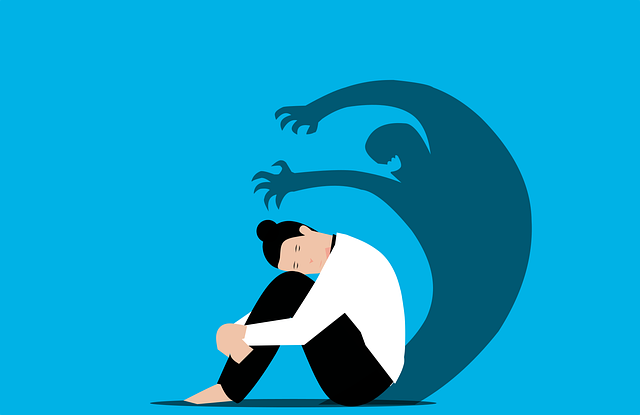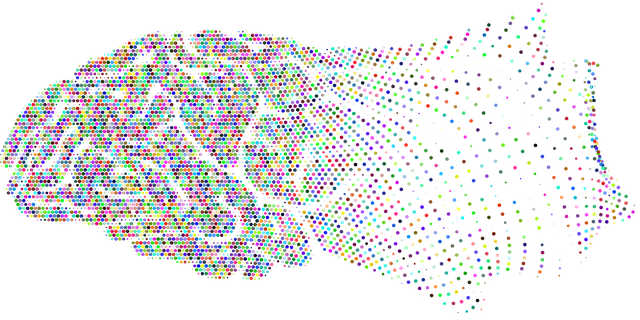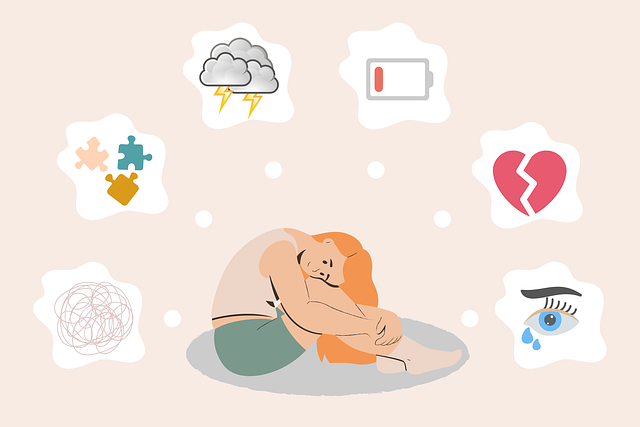Mental wellness apps, inspired by Broomfield Domestic Violence Therapy, are gaining popularity as accessible tools for managing stress and anxiety. These apps offer personalized plans using adaptive algorithms, incorporating evidence-based modules for empathy building, stress management, and resilience development. By integrating AI, secure communication, and gamification, they enhance engagement and accessibility, transforming support systems beyond traditional therapy settings. Effective design, robust data security, and strategic marketing are crucial for success, ensuring users can control their sensitive information while benefiting from app features tailored to their specific needs, like those offered by Broomfield Domestic Violence Therapy.
In today’s digital age, mental wellness app development has become a game-changer in providing accessible support. The growing demand for digital therapy solutions is evident, especially in addressing issues like domestic violence, as illustrated by the Broomfield Domestic Violence Therapy case study. This article explores the key aspects of creating effective mental wellness apps, from understanding user needs to implementing robust technological and privacy measures. We’ll also delve into successful marketing strategies and the continuous improvement process.
- Understanding the Need for Mental Wellness Apps
- Key Features of an Effective App: Broomfield Domestic Violence Therapy Case Study
- Technological Considerations for Development
- User Experience Design and Privacy Concerns
- Marketing, Launch, and Continuous Improvement Strategies
Understanding the Need for Mental Wellness Apps

In today’s fast-paced and often stressful world, mental wellness is more important than ever. The demand for accessible and effective tools to support psychological well-being has led to a surge in interest for mental wellness apps. These digital solutions offer individuals convenient and discreet ways to manage stress, anxiety, and other common mental health challenges. For instance, Broomfield Domestic Violence Therapy, a leading provider of specialized services, recognizes the potential of such apps in promoting public awareness campaigns development and risk management planning for mental health professionals.
By integrating features like meditation guides, mood tracking, and personalized self-care routine development for better mental health, these apps cater to diverse user needs. They empower individuals to take a proactive approach to their mental wellness, much like how Broomfield Domestic Violence Therapy empowers survivors of domestic violence. With the right app, users can enhance their resilience, improve overall well-being, and access support whenever and wherever they need it.
Key Features of an Effective App: Broomfield Domestic Violence Therapy Case Study

An effective mental wellness app should incorporate several key features to cater to users’ diverse needs and preferences. Among these, personalized plans tailored to individual user profiles stand out as a cornerstone. Taking inspiration from Broomfield Domestic Violence Therapy, an organization renowned for its innovative approach in addressing intimate partner violence, the app can integrate adaptive algorithms that learn from user interactions and progress. This ensures that interventions are contextually relevant and effective.
Moreover, incorporating Empathy Building Strategies, Stress Management Workshops Organization, and Resilience Building modules can enhance the app’s functionality. These features, grounded in evidence-based practices, offer users practical tools to navigate stress, build coping mechanisms, and foster healthier relationships—all vital components for maintaining mental wellness. By combining personalized experiences with proven therapeutic techniques, a well-rounded app emerges that supports users’ holistic mental health development.
Technological Considerations for Development

In the realm of mental wellness app development, Broomfield Domestic Violence Therapy stands as a beacon, highlighting the importance of integrating advanced technology to support emotional well-being promotion techniques. The journey towards creating effective digital tools involves careful consideration of various factors, especially with the growing demand for accessible and personalized therapy solutions. One key aspect is implementing robust risk management planning for mental health professionals, ensuring both user safety and data security.
By combining cutting-edge technology with evidence-based practices, developers can foster inner strength development through innovative features. This includes leveraging artificial intelligence for tailored content delivery, integrating secure communication channels, and incorporating gamification elements to enhance engagement. With these technological considerations in mind, mental wellness apps have the potential to revolutionize support systems, making therapy accessible beyond traditional settings, even addressing niche areas like Broomfield Domestic Violence Therapy.
User Experience Design and Privacy Concerns

Creating a mental wellness app requires a thoughtful approach to User Experience (UX) Design. The interface should be intuitive and accessible, guiding users through various self-care practices and stress management tools seamlessly. Incorporating features like personalized meditation sessions, mood tracking, and coping mechanism suggestions can enhance user engagement. UX design plays a pivotal role in encouraging consistent use, fostering inner strength development, and ultimately improving mental health outcomes.
Privacy concerns are paramount when developing such apps, especially considering sensitive data related to Broomfield Domestic Violence Therapy and other mental health issues. Robust data encryption, transparent privacy policies, and clear consent mechanisms are essential. Users should be empowered to control their information while enjoying the app’s benefits. This balance between effective UX design and stringent privacy measures ensures users can focus on their mental wellness journey without worry.
Marketing, Launch, and Continuous Improvement Strategies

After development, marketing plays a pivotal role in introducing your mental wellness app to its target audience. Highlighting features that cater to specific needs—like Burnout Prevention strategies or addressing Cultural Sensitivity in Mental Healthcare Practice—can attract users seeking tailored support. Effectively utilizing digital marketing channels and strategic partnerships can amplifiy the reach of your app, especially when targeting niche demographics like those in need of Broomfield Domestic Violence Therapy.
Post-launch, continuous improvement is essential for sustaining user engagement. Regularly gathering user feedback, analyzing usage data, and iterating on app functionalities ensure that the platform remains relevant and effective. Staying abreast of industry trends, including developments in Mental Health Policy Analysis and Advocacy, allows your app to incorporate evidence-based practices, thereby enhancing its value to users seeking mental wellness solutions.
Mental wellness apps are a powerful tool in modern healthcare, as evidenced by the success of programs like Broomfield Domestic Violence Therapy. As we’ve explored, these applications offer accessibility, convenience, and personalized support for users’ mental health journeys. By incorporating essential features, considering technological advancements, prioritizing user experience, and addressing privacy concerns, developers can create effective solutions that positively impact lives. With strategic marketing and continuous improvement, mental wellness apps have the potential to revolutionize access to care, making them a valuable asset in today’s digital healthcare landscape.














